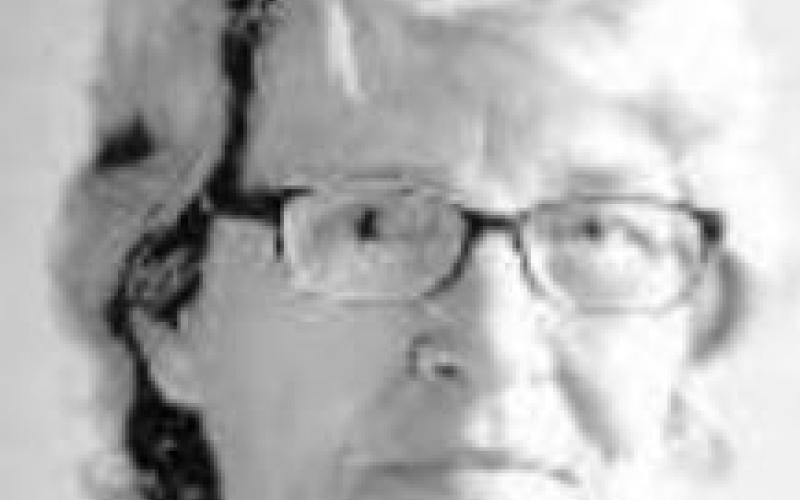Squyres men disembark train
In 1898, most towns did not allow guns to be carried openly within the city limits. In order for the four Squyres men to travel to Breckenridge with their guns, they were sworn in as deputies by the sheriff at Cleburne. This allowed the four Squyres men to carry their guns on the train to Breckenridge. The Squyres men had also picked up a fifth Squyres man at Weatherford, who also was deputized by the sheriff in Weatherford.
Everyone knew there would be trouble as the five Squyres men disembarked from the train at Breckenridge, with their horses and guns. A bit like an old western movie with the bad guys showing up loaded for bear. It would be difficult to imagine there wouldn’t have been any trouble between the Squyres and McCarty families that day.
However, local lawmen in Breckenridge prevailed and successfully calmed the men down and made attempts to have them drop the matter altogether. However, Jeff’s son, Claude Squyres, kept a vigil over his uncle until a jury was assembled and returned a verdict of No Charges! The reasoning was that there were bad feelings on both sides and closed the case.
Later, Mrs. Henry Green wrote about the shooting in her book about the Green Ranch. At some point, Squyres Chapel was moved to the Green Ranch and was renamed the Bethel School. Also, Frederick Henry Squyres and wife Ruby J. (Smith) Squyres, wrote about the event and other histories of the family in “Squyres with a ‘Y.’” He was the son of Albert Squyres, and grandson of William Jefferson ’Jeff’ Squyres. Their well-researched book now includes two volumes about the Squyres family history and can be found at our local library.
There were 21 Squyres men, cousins and brothers, who fought in the Civil War on the Confederate side. John Wiley Squyres had sent one-third of them. Eight Squyres men served in Sibley’s Cavalry Brigade, in the Confederate Army, during the Civil War. All but one Squyres man returned at the end of the war, Riley’s uncle, Wilson Squyres, who was killed in Louisiana in 1862. Riley’s brother, Joseph, and cousin Alf were both held as prisoners-of-war, but returned home after the war. Several Squyres brothers and kin owned much of the land in and around Sibley, La. As a result, most of the Squyres men went home to Sibley to join that Cavalry Brigade and serve together.
When John Wiley Squyres and his second wife, Nancy Jane Marshall (Thomas) Squyres moved back to his land in Texas, first in Angelina County, and later to Anderson County, several of his children returned with he and his second wife, Nancy. They included John W. Jr., Silas J., Martha Ann, Elizabeth, Ellen and Laura. When his first wife, Mary A.B. (Haden), died, she left John W. Squyres with nine children. He and his second wife, Nancy Melinda, had nine more children beginning with Melinda, in 1841. Next, came Allen Tolbert, Harmon Van, David Alton and Jane D. by 1848. Later, four more followed, which attributed 18 children sired by John W. Squyres and seven of his sons served during the Civil War. One or two had to lie about their age to get into the Cavalry unit at Sibley, La.
In Anderson County, Tx., in 1855, John W. Squyres’ daughter, Elizabeth, married John N. Killion. His father had the next farm past Squyres to the west and his son would inherit that land when his father died. Additionally, Squyres’ mother, Ann Squyres and his sister Sarah (Squyres) O’Neal had the farm next to his to the east. To the south, was a farm owned by John W. Squyres Jr. and on the other side of his farm was that of nephew, William M. Squyres, who was the first to arrive in that area, in 1848. Another nephew of John W. Squyres, Wilson Squyres, owned a farm further east. The Squyres families had greatly populated that county of Texas and wanted to establish the Squyres clan there, but the Civil War interrupted all their plans.
The elder, 64-year-old William Jefferson Squyres Sr. and other men too old to serve and the women and children left behind, managed the farms for those who had gone to serve in the Confederate Army.
Jeffie R. Squyres was born two months after her father’s tragic death at the hands of a cowardly gunman, who hid behind a door and gunned down William Jefferson ’Jeff’ Squyres, at the age of 44.
His widow, Susan Ella (Harl) Squyres, inherited the 100 acres given to ‘Jeff’ by his father, John Wiley Squyres. She was able to expand the acreage by purchasing another 320 adjoining acres by expanding the stock cattle from 60 head and picking pecans along the rivetr bed from the large, productive trees.
Subsequently, Susan married a Mr. Wasson of Crystal Falls. She died in 1921, at the age of 63 and was buried beside her first husband and their infant daughter, Jeffie, who had died at the age of three of scarlet fever.
As mentioned previously, Riley Anderson Squyres recovered from the four near-fatal wounds, with three of the bullets removed. The fourth was lodged too close to his heart and remained with him until he died at age 91. He continued to farm his 320 acres, located 13 miles west of Breckenridge on Hubbard Creek.
His daughter, Myrtie Leona (Squyres) Walker and her husband Rufus Wade Walker lived at Spur. When Texas Tech opened their doors, she became house-mother to eight boys, who attended school there before there were any dorms. The Walkers were childless until they adopted James Earle Walker in 1914.
- Log in to post comments



